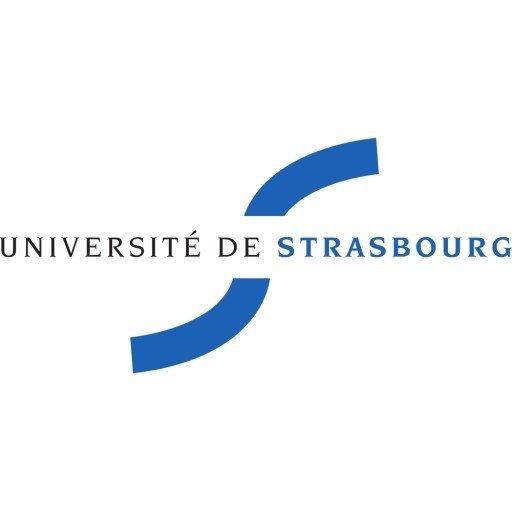Photos of university
The Bachelor's Degree in Biochemistry and Molecular Biology at Sorbonne University offers students a comprehensive education in the fundamental processes that underpin life sciences. This programme is designed to provide a solid foundation in both biochemistry and molecular biology, preparing graduates for careers in research, healthcare, biotech industries, and academia. Throughout the course, students explore the structure and function of biomolecules such as proteins, nucleic acids, lipids, and carbohydrates, gaining a deep understanding of how these molecules interact within living organisms. The curriculum emphasizes experimental techniques, laboratory skills, and data analysis, enabling students to design and conduct scientific experiments with precision and accuracy. Students also learn about gene expression, regulation, and molecular genetics, equipping them with knowledge essential for advances in genetic engineering and personalized medicine. The programme includes courses on cell biology, structural biology, metabolic pathways, and systems biology, fostering an integrated understanding of biological systems. Practical training is a core component, with laboratory sessions, internships, and research projects available to develop hands-on experience. The programme benefits from Sorbonne University's strong connections to research institutions and industry partners, offering students opportunities for internships and collaborative projects, which enhance employability and career prospects. Additionally, students are encouraged to engage with emerging fields such as synthetic biology, bioinformatics, and nanobiotechnology, ensuring they stay at the forefront of scientific innovation. The multilingual and multicultural environment of Sorbonne University enriches the learning experience, preparing students for international careers. Graduates of this programme will possess critical thinking, problem-solving skills, and a thorough understanding of molecular mechanisms that drive biological processes, equipping them to contribute meaningfully to scientific advancement and health-related fields worldwide.
Main courses offered by the Department of Biology
At least 18 ECTS have to be taken among these courses
- BIO-M2-E01-S1 Mathematics and programming training
- BIO-M2-E02-S1 High-throughput data analysis for genomics (3 ECTS)
- BIO-M2-E16-S2 Computational analysis of cis-regulatory sequences (3 ECTS)
- BIO-M2-E18-S1 Frontiers in Microbial systems (3 ECTS)
- BIO-M2-E03-S1 Dynamical modelling of cellular regulatory networks (3 ECTS)
- BIO-M2-E05-S1 Cellular ecosystems: from modelling to medecine (3 ECTS)
- BIO-M2-E06-S1 Cellular machineries and regulation of gene expression (3 ECTS)
- BIO-M2-E04-S1 Optical Microscopy : principles and applications in Neurosciences (ex: From single molecule to the dynamics of cell ultrastructures) (6 ECTS)
- BIO-M2-E08-S1 Neurophysiology (12 ECTS)
- BIO-M2-E15-S1 Interdisciplinary tutorials in neuroscience (6 ECTS)
- BIO-M2-E13-S1 Modeling and analysis of neuronal networks, synaptic transmission and single photon response (6 ECTS)
- BIO-M1-S08-S1 Development of the Nervous System (6 ECTS)
- BIO-M1-S05-S1 Evolutionary genetics (6 ECTS) (M1)
- BIO-M1-S04-S1 Genomes & phenotypes (6 ECTS) (M1)
- BIO-M2-E09-S1 Genetic basis of phenotypic variation (3 ECTS)
- BIO-M2-E17-S1 Experimental Evolution (6 ECTS)
- BIO-M1-S07-S1 Biology of Ecological Systems (6 ECTS) (M1)
- BIO-M2-E19-S1 Experimental Ecology (3 ECTS)
- BIO-M2-E10-S1 Functional and evolutionary genomics (3 ECTS)
- BIO-M2-E11-S1 Adaptive Dynamics Modeling (3 ECTS)
- BIO-M2-E12-S1 Structured Population Modeling (6 ECTS)
- BIO-M2-E07-S2 Multidisciplinary approach to plant and animal morphogenesis (6 ECTS)
- BIO-M1D09-S1 Methodology Tutorials in M1 + M2 (optional course: 3 ECTS for DENS or 0 ECTS)
Main courses offered by the Pasteur Institute
- Genome Analysis (12 ECTS)
- Cellular and Molecular Genetics (12 ECTS)
- Mouse Genetics (12 ECTS)
- Protein Biochemistry (12 ECTS)
- Molecular Biology of the Cell (12 ECTS)
- Development and Plasticity of the Nervous System (12 ECTS)
- Multiple Roles of RNAs (6 ECTS)
Main courses offered by the Curie Institute
- Epigenetics (6 ECTS)
- Developmental biology : from stem cells to morphogenesis (6 ECTS)
- Non-Coding Genome (3 ECTS)
Our students are further encouraged to take courses offered by other scientific departments of ENS (Mathematics, Computer Sciences, Physics, Chemistry, Earth Sciences, Cognitive Sciences), or by neighbouring institutions.
- A curriculum vitae, mentioning training courses and detailing your higher education pedigree (subjects and modules).
- A copy of the internet registration form
- An ID photography.
- A letter of application (typewritten), presenting yourself, indicating how you see your professional career, what the graduate program will bring you, and specifying the main courses that you would like to follow.
- A photocopy of the bachelor’s degree (or equivalent) and all undergraduate and postgraduate academic transcripts. Please, supply any available official information regarding your relative ranking (e.g. top 5%) and the number of students in the class.
- Two or three letters of recommendation sent to us directly (preferably by e-mail) by professors or researchers who know you well.
Send the complete file at the latest by (March 31st or June 1st) by email at: imalisM2@biologie.ens.fr or by mail
The Biochemistry and Molecular Biology program at Sorbonne University offers a range of financing options for both domestic and international students. Tuition fees for this program are structured to accommodate students from various backgrounds, with annual costs typically ranging from 6,000 to 15,000 euros, depending on the student's residency status and level of study. French and EU students benefit from significantly lower tuition fees due to government subsidies, while non-EU international students may pay higher rates. Additionally, students are encouraged to explore various scholarship opportunities provided by Sorbonne University, including merit-based scholarships, needs-based financial aid, and mobility grants.
In addition to university-specific scholarships, students can also apply for external funding sources such as the Eiffel Excellence Scholarship Program, which supports international students pursuing master's and doctoral degrees in France. Other financial aid options include regional grants, Erasmus+ mobility scholarships for students participating in exchange programs within Europe, and private foundation grants dedicated to supporting scientific education and research.
Students are advised to carefully review the eligibility criteria and application procedures for each scholarship or grant, as competition is often intense and application deadlines vary. It is also recommended to consider part-time employment opportunities available on and around campus, which can help offset living expenses. Sorbonne University provides a dedicated International Students Office and Financial Aid Office to assist students in navigating available funding options and ensuring they meet all necessary requirements for financial support.
Students should also plan for additional costs related to housing, health insurance, books, and daily living expenses, which vary depending on the city of Paris and individual lifestyle. French students might access special student health insurance schemes at reduced rates, while international students need to arrange for appropriate health coverage as mandated by French immigration regulations.
Overall, financing studies at Sorbonne University requires careful planning and leveraging a wide array of financial aid resources. Prospective students are encouraged to start exploring funding options early and to consult university advisors for personalized guidance. By actively seeking scholarships, grants, and support programs, students can substantially reduce their financial burden and focus on achieving academic success in the field of biochemistry and molecular biology.
The Bachelor’s Degree in Biochemistry and Molecular Biology at Sorbonne University offers students a comprehensive education in the fundamental principles of life sciences, focusing on the chemical processes within and related to living organisms. This program is designed to provide students with a strong foundation in biochemistry, molecular biology, genetics, and cell biology, preparing them for careers in research, healthcare, biotechnology, and academia. The curriculum typically includes courses on organic and inorganic chemistry, structural biology, gene expression, enzymology, molecular diagnostics, and bioinformatics. Students also gain practical laboratory skills through hands-on experiments, allowing them to develop proficiency in modern techniques such as PCR, electrophoresis, chromatography, and microscopy.
The program emphasizes an interdisciplinary approach, integrating principles from chemistry, biology, and physics to understand complex biological systems at the molecular level. Students are encouraged to develop critical thinking and analytical skills, which are essential for solving scientific problems and conducting independent research. Throughout their studies, students may participate in internships and research projects, often collaborating with faculty members on innovative scientific investigations. These experiences aim to enhance their practical knowledge and prepare them for graduate studies or careers in scientific research, pharmaceuticals, medical diagnostics, or biotechnological development.
Sorbonne University’s program benefits from its strong academic reputation and connection with research institutions, providing students with access to cutting-edge laboratories and resources. The program also focuses on fostering international communication skills and cultural awareness, encouraging students to engage with scientific communities worldwide. Graduates of this program are well-equipped to pursue postgraduate studies in specialized fields like molecular genetics, structural biology, or pharmacology, or to enter the workforce in roles such as laboratory technician, research assistant, or scientific consultant. Overall, the Bachelor’s Degree in Biochemistry and Molecular Biology at Sorbonne University aims to cultivate a new generation of scientists capable of addressing current and future challenges in health, environment, and industry through innovative scientific inquiry and technological advancement.





